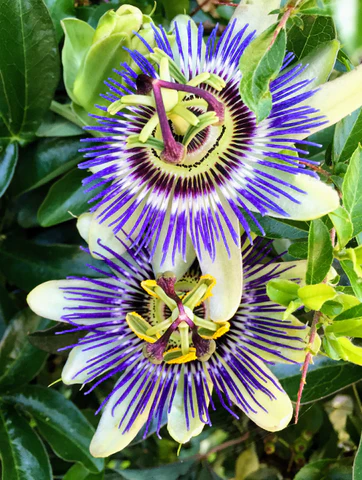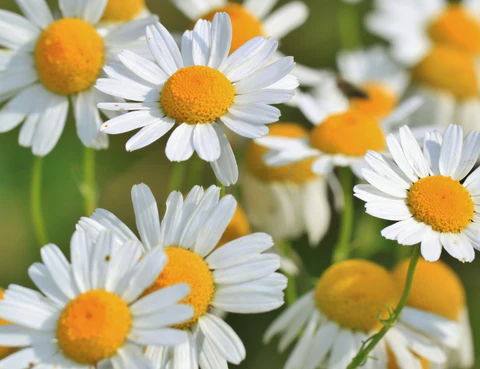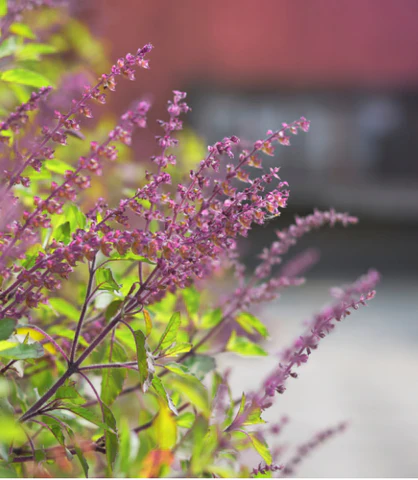Feeling frazzled!.....Using nourishing food and botanicals to calm menopausal anxiety and reduce stress
- NCIFM

- Jan 9, 2024
- 5 min read
As women approach and transition through menopause, anxiety is a very common feature and can become overwhelming.

Alongside feeling more irritable, experiencing mood swings, anxiety, panic and increasing tearfulness and sensitivity, emotional changes are very common in the menopause transition.
Changes in FSH and LH hormone levels alongside a decline in progesterone and oestrogen are responsible, alongside a reorganization in the HPA (or stress) axis of the body. Oestradiol, a type of oestrogen, has important neuroprotective effects, influencing healthy negative feedback in the HPA axis and so with declining levels changes in emotions can occur. Progesterone, is our feel good and calming hormone, with an action on the GABA system in the brain which is responsible for calming anxiety in our mind. Progesterone deficiency can be an important driver for anxiety and panic, irritability and restlessness. Collectively these changes can manifest as difficulty sleeping, anxiety, negative mood and often feeling like you are losing your sense of self and identity or going mad!
It is important to remember to rule out and address other causes of anxiety too, such as imbalances in thyroid function, gut microbiome, trauma, food sensitivities or physical pain all of which may be contributing to the problems.
Ideally if we begin adapting and improving our nutrition and making simple lifestyle changes before or during menopause we can help to nourish and balance our HPA or stress axis and adrenal glands, supporting healthy neurotransmitter transmission, helping to balance hormones and reducing the effects of these changes on our body and mind.
One of the key first steps is ensuring healthy blood sugar levels, this can help reduce stress hormones like cortisol in the body and is very important for balancing mood, energy and reducing anxiety. A low GI diet can be really helpful, with regular high-quality protein a key. Especially proteins rich in tyrosine which is a building block for some stress and thyroid hormones. Tryptophan, glutamine and methionine are also important amino acids which come from proteins and are important for neurotransmitter production. Eating complete proteins daily at each meal of the day allows sufficient levels of these essential amino acids. Complete proteins include eggs, fish, meats or a combination of wholegrains and legumes and tofu. Avoiding processed and refined sugar, white carbohydrates, excess caffeine and alcohol can also be very helpful in balancing blood sugars.
Other nutritional changes can be very helpful including adding magnesium rich foods, as magnesium deficiency is very common, estimated at approx. 60% of women and a cause of HPA/stress axis imbalance and anxiety. Foods rich in magnesium include swiss chard, spinach, kelp, squash, pumpkin seeds, halibut, steamed broccoli. Supplementing with magnesium glycinate at dinner time can also help many people manage anxiety and support sleep.
Foods rich in B vitamins are essential for a healthy nervous system and stress response, and for thyroid hormone production, in particular vitamin B5, found in nuts, seeds, wholegrains, and leafy greens. Vitamin C is also needed for a healthy stress response so look at adding salad greens, broccoli, bell peppers, strawberries and citrus fruits into your diet regularly. Again, supplementing in a liposomal form can be very supportive during the menopause.
Other really useful additions can be Maca, which is a highly nourishing food that can be added in powder form to a smoothie each day or used in baking. It is a wonderful root for supporting the body in times of stress. Green tea contains the amino acid L-theanine, which has been found to increase low levels of serotonin, dopamine and GABA, all important chemicals in the brain which help us to feel calm, relaxed and happy.
As so many of us notice, memory loss is a common feature of menopause too, which often makes anxiety worse. Choline rich foods are important to produce acetylcholine, found in egg yolk, fish roe, liver and lecithin grains. A lack of choline has been found to lead to memory loss as it is an essential component of the neuron membranes. So, try adding these foods into your diet. Phospholipids are equally important to protect the myelin sheath of the brain and improve receptor signally for good communication in the brain. Eating oily fish is a keyway to ensure a good intake of phospholipids. Vegan sources include, chia, flax, pumpkin seeds, as well as walnuts.
Alongside all these wonderfully supportive foods we can also nourish our mind and body with some really useful botanical and medicinal herbs.
My favourites are:
Passionflower (Passiflora incarnata) – this restorative and nourishing medicinal plant is a wonderful herb for anxiety, offering a calming and relaxing action due to its flavonoid and alkaloid constituents. It is particularly effective when used in herbal teas and is excellent for mild to moderate anxiety and poor sleep and combines well with St John’s Wort in anxiety with depression.
Valerian (Valeriana officinalis) – is a common herbal supplement and is a popular choice for anxiety, it can be used to reduce tension, anxiety, and overexcitable states. As an antispasmodic, it has a muscle relaxing effect on smooth and skeletal muscles, and can aid in the relief of cramping, and neuralgias. The volatile oils are responsible for the sedative, hypnotic and antispasmodic actions.
Chamomile (Chamomilla recutita) - Chamomile is widely regarded as a mild tranquillizer and sleep-inducer. Sedative effects may be due to the flavonoid, apigenin that binds to benzodiazepine receptors in the brain. Chamomille can be easily taken as a herbal infusion, and I would recommend infusing for 15-20 minutes to gain an effective dose.
Oatstraw (Avena sativa) – is a gentle and nourishing herb with a restorative and calming action. It is especially useful where there is exhaustion and stress or overwork leading to a ‘tired but wired’ state and chronic overstimulation. Oats are highly nourishing, revitalizing, restorative and rejuvenating. Please note it does contain gluten so is therefore not suitable for coeliacs.
Oat Tops (aka. milky green oats or seed of unripe plants) can also be used in a similar way to oatstraw, but they also contains alkaloids, and are classified as an adaptogenic nervines which make them very useful in anxiety and depression.
Ashwaganda (Withania somnifera) – this wonderful Ayruvedic herb is a popular choice for use in stress, burnout or overexertion, it has a deeply nourishing and restorative action on the body and is also relaxing and calming. Traditionally taken as a milky drink before bed, it can also be taken as capsules and a tincture. It is classified as a rejuvenating, nervous system tonic and adaptogen, meaning it helps to reduce the effects of stress on the body.
Tulsi (Ocimum sanctum) –Tulsi is native to India and has been used in Ayurvedic medicine for well over 5,000 years. It is the most sacred of plants in Hinduism and it’s ability to clear mental fog makes it a useful herb to promote memory and cognitive function, as well as in ADD/ADHD. Tulsi is used to help bring focus and it protects against psychological stress through its calming and antidepressant properties. It can also lower elevated cortisol, the stress hormone, helping to reduce the effect of stress on the body.
Within the Dr Sally’s Botanicals range we have a Chillout organic herbal tea, which is a based on the formulas of relaxing and calming herbs that I use in my clinic. It contains Tulsi, Oatstraw and Passionflower, alongside Lemon balm, Hawthorn, Cardamom, Ginger and Licorice.
At Orchard Barn Health we also have a qualified medical herbalist, nutritional therapist and an Integrative and Functional Medicine Women’s Health clinic run by myself which specialises in an integrative approach to perimenopause and menopause.
Dr Sally MoorcroftIntegrative and Functional Medicine DoctorOrchard Barn Integrative Health Centre, Stallingborough, Grimsby, NE Lincolnshire DN41 8AJ











Comments